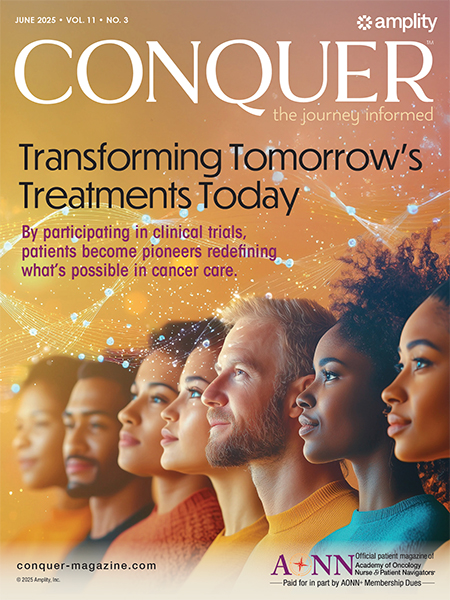Articles & White Papers
The COVID-19 Pandemic’s Impact on Cancer Incidence
The COVID-19 pandemic has presented more questions than it has answers, especially when determining how it will affect cancer incidence in the future.
The Reciprocal Value of Patient and Caregiver Support Programs
The recent proliferation of patient and caregiver support programs is being driven by greater patient involvement in health decisions, increasing attention on patient outcomes, and the growth of specialty drugs that require additional patient support. These programs encompass a range of services which enable pharmaceutical companies to improve access to, usage of, and adherence to prescription drug treatments.
Cancer Costs Continue After Cancer Treatment Ends
As navigators you are well aware of the financial burden a diagnosis of cancer can have on a patient and his or her family. Deductibles, copayments, missed time from work, and uncovered ancillary care by their insurance company all add up to huge out-of-pocket costs. Did you know that cancer costs continue for years even as a cancer survivor?
Women Make Healthcare Decisions for Their Families
It is a fact that in most households the woman makes the decisions regarding healthcare for her loved ones. This includes nudging her husband to get his blood pressure checked, or taking the children to the pediatrician to get their vaccines and other medical care.
Responding to Patient Questions About Survival Statistics
This happens nearly every day, doesn’t it? A newly diagnosed patient with cancer wants to know the odds of living through and beyond his or her cancer treatment. It doesn’t matter if we tell patients that we hope they live a long time and not to focus on stats; they focus on them anyway. But when it comes to statistics, there are some important facts for nurse navigators to consider.
Turn a Survivorship Care Plan into a Survivorship LIFE Plan
Although the requirements to provide a cancer survivor a treatment summary and survivorship care plan have been in place for several years, with 2015 being the required timeframe for officially demonstrating that these medical records are being provided, most institutions are still not ready.
Knowing Your Patient’s Life Goals
When someone has just heard in the last day or so that they have cancer, their life is in a tailspin. So when I ask a patient, “Before you heard that you had cancer, what were your life goals?” commonly the response is, “It doesn’t matter what they were. Just please save my life.” But it does matter, because we should be striving to incorporate those life goals into the patient’s treatment planning process.
What Is the Cost of Hope?
I am currently writing my 14th book. This one is a textbook for oncologists with the goal (hope!) that we can collectively improve communication with patients with metastatic cancer. All too often the doctor continues to offer another treatment because that is what they have been taught in medical school—“treat the patient.”
The Risk of Caring
As the New Year starts off, many people resolve to improve their life in one fashion or another. Usually the goal is diet-related to eat healthy and lose weight or to decrease a type of intake, such as caffeine or fat. We know that gyms are busy in January and attendance dwindles in February. The New Year is a time to set improvement plans.
What Native Americans Can Teach the Cancer Community
In 2013, the Institute of Medicine (IOM) released a workshop summary, Leveraging Culture to Address Health Inequalities: Examples from Native Communities. I was struck by a number of things that are both timely and applicable to the unique challenges faced by the cancer community in America and to patient navigators in particular.
Thank You to Our Corporate Sponsors and Alliance Partners!

Major Corporate Sponsor

Patron Corporate Sponsor

Patron Corporate Sponsor

Patron Corporate Sponsor

Industry Relations
Council Member

Industry Relations
Council Member

Industry Relations
Council Member

National Alliance Partner

National Alliance Partner

National Alliance Partner

National Alliance Partner

National Alliance Partner

National Alliance Partner
Privacy Notice | Terms of Use
© 2009- DBA AONN+ Academy of Oncology Nurse & Patient Navigators® | PO Box 357387, Gainesville, FL 32635-7387 |
AONN+ DBA AONN+ is a 501(c)(6) organization under federal tax guidelines. AONN+ Foundation for Learning, Inc. a 501(c)(3) organization under federal tax guidelines.
AONN+ Advantage, LLC, a wholly owned subsidiary of AONN+.


